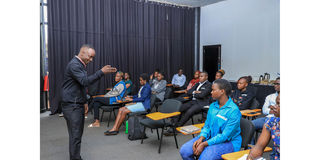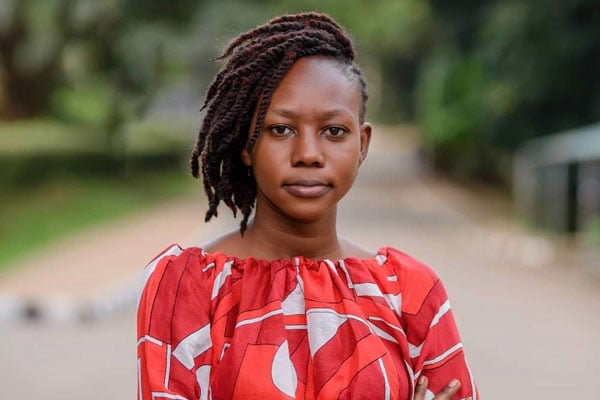Journalists tipped on countering misinformation, fake news

Participants during the Media and Information Literacy training at the MCI Media Hub listening to Abaas Mpindi, the CEO, MCI on April 3, 2024. PHOTO | COURTESY | MCI
What you need to know:
- The training, focused on fostering media literacy among young journalists, a crucial skill in today's information landscape- comes at a time when misinformation and dissemination of fake or unverified information is been rampant among members of the public.
Kampala journalists have participated in a training programme aimed at equipping them to counter misinformation and fake news.
The "Countering Misinformation Through Media Literacy" workshop, held between Wednesday to Friday was a collaborative effort by the Media Challenge Initiative, the US Mission in Uganda, and the Debunk Initiative.
The training, focused on fostering media literacy among young journalists, a crucial skill in today's information landscape- comes at a time when misinformation and dissemination of fake or unverified information is been rampant among members of the public, spread by some media personalities and social media influencers.
This saw the government in May last year cautioning those that have made it a habit to spread fake news on social media platforms, which Dr Chris Baryomunsi, the Minister of ICT and National Guidance, identified as a threat to professional journalism, during the World Press Freedom Day celebrations.
The CEO for Media Challenge Initiative, Mr Abaas Mpindi, said the training is crucial to understand the power of media literacy and countering misinformation.
“As media, we don’t pay much attention to advertising or promoting our work. Media literacy as a skill helps us to build capacity of the public to demand and build quality journalism which then we have to provide. On countering misinformation, it is our work to fact check. Fact checking is however becoming more sophisticated, but through such trainings, they (journalists), are able to better fight misinformation,” he said.
Lead trainer Antonio Kisembo emphasised the timeliness of the programme, especially with Uganda's upcoming general election. He highlighted the importance of verifying information, including political manifestos, to combat misinformation during this period.
“We believe that for any journalists and any person in this country, they need to learn how to access and analyse information. There is a lot of information going around that needs to be fact checked. We are now almost heading towards elections, and that is the period where we get a lot of misinformation and disinformation. We hope the knowledge we have given the young journalists will enable them check everything,” Kisembo said.
The training also offered a unique opportunity for journalists to pitch stories for debunking misinformation and receive support for factual reporting.
The training's focus on young journalists is particularly relevant given Uganda's mobile phone usage statistics.
A National Information Technology Authority report indicates that nearly 24.8 million Ugandans own mobile phones, with a significant portion being young people (15 to 24 years). This widespread smartphone use increases the risk of misinformation spreading, making media literacy and verification skills critical for responsible information dissemination.






